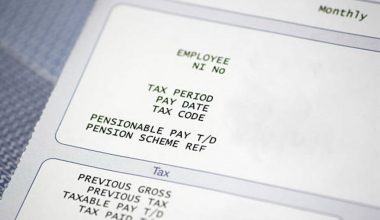The time spent on bookkeeping is time that may be better spent on fundraising, advocacy, and forming partnerships for a nonprofit. But accounting and bookkeeping are still essential to the success of any organization. While you may be a hero for your organization’s cause, you and your employees may be zeroes and ones when it comes to understanding how to properly manage a nonprofit’s finances. Generally speaking, nonprofit organizations use the same bookkeeping activities and accounting concepts as for-profit enterprises when it comes to recording, tracking, and analyzing financial transactions. This article tells you more about what you need to understand about bookkeeping for non profit organizations.
What Is Bookkeeping for a Non Profit?
Bookkeeping for a nonprofit entails entering, categorizing, and organizing financial data with the aim of creating accurate financial records.
In order to keep their tax-exempt status with the Internal Revenue Service (IRS) and to follow GAAP, a nonprofit is required to keep detailed and accurate financial records. To achieve this goal, precise record-keeping is essential.
What Does a Bookkeeper Do for a Non-Profit?
The major objectives of nonprofit accounting are accountability and transparency, and these can only be attained via the meticulous and timely recording of all expenses, revenues, and financial transactions. The duties of a bookkeeper in nonprofit organizations mostly include the following:
- Take care of incoming receipts and store them safely.
- Perform entry of data to maintain an accurate general ledger.
- Maintain a ledger of your income and expenditures.
- To keep track of and record money transfers and deposits
- Distribute income and costs to the designated accounts.
How Do You Keep Books for a Small Nonprofit?
It is common practice for a non profit to elect a treasurer or chief financial officer who is responsible for overseeing all financial matters like bookkeeping. In addition, a competent treasurer requires particular resources. Making purchases with cash and keeping records in a shoebox won’t cut it. Here are simple ways how to keep books for a small nonprofit.
#1. Create a Financial Plan
The objectives of a nonprofit are distinct from those of for-profit enterprises, yet an operational budget is still required. An operating budget is a financial forecast of expected business expenditures and revenues and is often prepared on a weekly or annual basis.
Depending on its mission, a nonprofit’s operating budget will appear different from another’s. Here is where business expertise might be useful. Forecasting costs and revenues is a complex process that requires extensive preparation but can be expressed in relatively few words, making firsthand experience invaluable.
Furthermore, those in charge of nonprofit organizations who wish to learn Accounting or need assistance with bookkeeping can do so. A full-time or part-time bookkeeper may be necessary, depending on the expertise already on staff. They can assist with the selection and acquisition of Intuit, provide training for your employees on its use, or handle all of your accounting needs themselves.
#2. Create a New Banking Account
Don’t utilize your personal bank account as a nonprofit’s primary means of receiving, holding, or disbursing funds. Maintain a separate checking account for your nonprofit’s money. Inquire with your financial institution about any nonprofit-specific business checking accounts they may provide.
#3. Appoint a Chief Financial Officer or Treasurer.
It’s crucial to choose an in-house treasurer or financial officer who has experience with nonprofit bookkeeping. As an added bonus, having experience with accounting software like QuickBooks makes it less difficult to keep tabs on things like purchase orders, in-kind gifts, activity statements, etc.
#4. Reconcile Accounts
After establishing a bookkeeping system and bank account, you’ll want to verify the accuracy of the data in each. You can do this with the assistance of bank reconciliation.
Just compare each transaction on your bank statement with the corresponding entry in your books, and you’ve completed a bank reconciliation. To keep tabs on cash flow, identify potential fraud, and catch accounting mistakes, it’s important to perform a bank reconciliation at least once a month.
#5. Initiate the Use of Purchase Orders
The spending policies of nonprofits are extremely restricted. They require a streamlined process that guarantees orders are placed, costs are calculated accurately, and needs are met in a timely manner.
A purchase order is a useful tool for making this happen. Furthermore, In order to ensure that you and your supplier are always on the same page, it is common practice to send a purchase order from the buyer to the seller to confirm a specific purchase of products or services. If your supplier signs it, you have a legally enforceable contract specifying the items you requested, the price you paid, and the date your supplier committed to deliver them.
What Kind of Accounting Do Nonprofits Use?
Accountability in financial management is a key component of nonprofit accounting and bookkeeping. Donors to your nonprofit have the option of putting conditions on their contributions, and grant providers will want to verify that the money was used for what it was intended. Furthermore, It is your responsibility to adhere to these constraints and spend the donors’ money in a way that wins their approval. This is why nonprofits use fund accounting.
To keep track of donations and ensure that money is spent just where it was intended, nonprofits can use a system called fund accounting.
Which Quickbooks Is Best for Non Profits?
Nonprofit variants of QuickBooks products including contribution tracking, bookkeeping, invoicing, and other accounting tasks are available as part of QuickBooks for Nonprofits, a line of accounting software for small to medium-sized nonprofit organizations. In addition, the QuickBooks Nonprofit and Standard editions are available at steep discounts through TechSoup, making them an excellent choice for financially strapped NGOs. In this evaluation, “QuickBooks for Nonprofits” will refer to the QuickBooks Premier for Charities and Other Organizations.
When it comes to comprehensive software, larger nonprofits should look no further than QuickBooks Enterprise Nonprofit. Whether it’s QuickBooks Premier, QuickBooks Premier Plus, or one of the online versions, these products are ideal for small and medium-sized charitable organizations.
Bookkeeping For Non Profit Organizations
Bookkeeping in exchange for tax-exempt status, non profit organizations are required by the IRS to be managed by their nonprofit board or voting members. Non-profit organizations have also agreed to substantial financial transparency. The IRS tax statute that grants a nonprofit tax-exempt status has an impact on financial record-keeping details. One method a nonprofit can demonstrate its commitment to its charitable objective is by the correct use of assets, as evidenced by the organization’s financial records.
Furthermore, the Financial Accounting Standards Board (FASB) and the American Institute of Certified Public Accountants (AICPA) have produced accounting standards for all private organizations that may be used in non profit bookkeeping. There are two organizations that provide GAAP (generally accepted accounting principles) for nonprofits.
How Do I Record Donations for a Non Profit?
Non profit organizations face a number of financial, accounting, and bookkeeping obstacles. Many people and businesses provide in-kind or non-monetary donations to help nonprofits boost their cash resources.
Furthermore, a gift of goods or services rather than money is known as an in-kind contribution. Donations of time, effort, and other resources are all examples of in-kind donations. Nonprofits can accept in-kind donations of products and services to further their mission. In addition, whether or not to count some in-kind donations as charitable contributions can be governed by these crucial criteria.
So, to record donations for non profit create a new revenue account, but use the existing expenditure account for the costs associated with the transaction.
How Do Non Profits Get Financial Statements?
Nonprofit organizations use a variety of sources when trying to make sound financial decisions for the future. All have a unique function and can shed light on different aspects of your business. A statement of financial position (also known as a nonprofit balance sheet) provides the most information about your organization’s financial health as a whole.
It’s possible that your nonprofit organization’s accountant or accounting staff has already compiled one. It’s time to get going if you haven’t already. This can tell you if your nonprofit organization has the resources to embark on new financial projects and expand its operations. Furthermore, it can function as a financial crisis early warning system.
A balance sheet or statement of financial condition is essentially a snapshot report that displays the financial health of your nonprofit organization. Having this one document allows you to easily keep track of your organization’s assets, liabilities, and net assets. In addition, it’s important to remember that if your company employs accrual accounting rather than cash accounting, this report will be more accurate and useful.
Can I Use My Personal Bank Account for a Nonprofit?
Never accept donations, store funds, or pay out donations from your personal bank account. Make use of a specific bank account for your nonprofit’s money. To find out if your bank provides nonprofit organizations with business checking accounts, you can ask.
Benefits of Bookkeeping for Non Profit
Is the overwhelming amount of bookkeeping paperwork strangling your nonprofit organizations? Bookkeeping can take a lot of time and energy away from the actual work of running a nonprofit, which is generally its primary focus. If this is you, then learning about the benefits nonprofit accounting may bring to your workday is essential.
If you relieve employees from having to create budgets and write reports, they’ll have more time on their hands. Here are some of the benefits.
#1. Security
Many people don’t bother to protect their accounts from malicious users within the company or from the outside world. Any nonprofit organization faces a genuine risk from malicious attacks and information theft.
However, Your organization probably already has an IT team that can keep an eye out for any unusual activity on the network. Bookkeeping services have the additional benefit of ensuring the privacy of sensitive financial data. If the accounting staff notices any discrepancies or changes, they can check the big picture to understand what’s going on.
Dedicated bookkeeping services limit personnel access to finances. Most NGOs can choose to make their finances public or private. Accounting can promote transparency and manage access.
#2. Current Regulations Compliance
The Financial Accounting Standards Board is responsible for establishing universally accepted accounting principles. Things like this can rapidly shift. Bookkeeping mistakes can be rather pricey if they are overlooked.
If your nonprofit has an in-house accounting team, you won’t have to worry about keeping up with these changes. They will be aware of any updates on the FASB issues as professionals.
#3. Accessing Financial Transparency Through Accounting Services for Nonprofits
In the process of handling a nonprofit’s finances, there can be a sizable time lag between transactions and the recording of funds in a ledger. Once or twice a month, a transaction may occur, but it may take some time for it to show up in your records.
Timely recording of transactions is another benefit of using nonprofit bookkeeping services for organizations. As a result, budgeting is simplified and made more open and public when done in real-time. Also, read NONPROFIT ACCOUNTING: Best Services and Software
#4. Financial Experience
Perhaps there is already someone working for you who has some accounting experience or formal education. On the other hand, this is not the case for the vast majority of smaller charitable organizations. This leaves the field of accounting wide open to novices.
Professionals of high renown could even be serving as board members. Accountants are frequently employed to handle this function. In order to make sound financial decisions, it is helpful to have access to professional financial accounting.
Do Non Profits Pay Expenses?
Like for-profit companies, nonprofit organizations frequently adopt a reimbursement program to cover staff costs linked to their missions. The Internal Revenue Service (IRS) states that a nonprofit employee is entitled to compensation for expenses they incur personally that are directly for the organization.
What Is Revenue Called in a Nonprofit?
Earned revenue is what nonprofit organizations charge for these services. This revenue must be disclosed separately from donations and fundraising activities’ proceeds. If a nonprofit receives an excessive amount of certain sorts of earned income, it may be questioned as to whether the organization is truly nonprofit.
How Is Non Profit Bookkeeping Different?
Accountability is a focus for nonprofits. For-profit organizations (as the name suggests) concentrate their attention and resources on making a profit. They desire to earn a lot of money. Nonprofit organizations, on the other hand, employ a fund accounting system that puts accountability before profit.
Is Nonprofit Cash or Accrual?
Because it matches revenues and expenses throughout the same period of time, accrual basis accounting is the accounting system that is more accurate. A CASH BASIS is used by the majority of very small organizations because it is simpler to understand and requires less accounting knowledge.
Do Non-Profits Need a Balance Sheet?
When requesting federal tax exemption and submitting tax returns, nonprofits are required to furnish a balance statement. Nonprofit balance sheets disclose your organization’s liquidity and the amount of cash on hand. It can be a great approach to monitor the evolution of your company’s financial situation over time.
Who Handles the Finances in a Nonprofit?
A benevolent nonprofit’s board of directors has a fiduciary duty to see that the assets are used to further the nonprofit’s philanthropic goal and are in line with the intentions of donors. Adopting financial policies by the board of directors is one technique to guarantee good financial management.
Conclusion
Non profit bookkeeping is a distinct subset of financial organizations. Learning the fundamentals of bookkeeping will help any nonprofit better understand its own financial status. If bookkeeping is still falling under the purview of your executives, you may want to look into hiring an outside firm to handle it for you. They will aid in the implementation of best practices and internal controls, leading to more prudent financial management.
Bookkeeping for Non Profit FAQs
What is the main objective of keeping records in a not for profit organization?
In order to help you generate financial statements that can be useful when dealing with banks, creditors, donors, and funding organizations, it is important to keep track of your income and expenses as well as your assets and liabilities.
How long should non profits keep records?
Nonprofit organizations must keep all records for the duration of the applicable statute of limitations.
Why do nonprofit organizations need to keep proper accounting books?
First, they’re accountable to members and donors, and second, the law mandates them to keep good books so the government can control grants. Also, Good accounting reduces fraud and embezzlement.
Similar Posts
- How Do Nonprofits Make Money? Best 2022 Practices (Updated)
- Grant Management Software: Top 10 Options For Nonprofits
- BOOKKEEPING SERVICES FOR SMALL BUSINESS: Top Best for Small Business in 2022
- Top Best 10+ BOOKKEEPING SYSTEMS FOR SMALL BUSINESS for 2022






